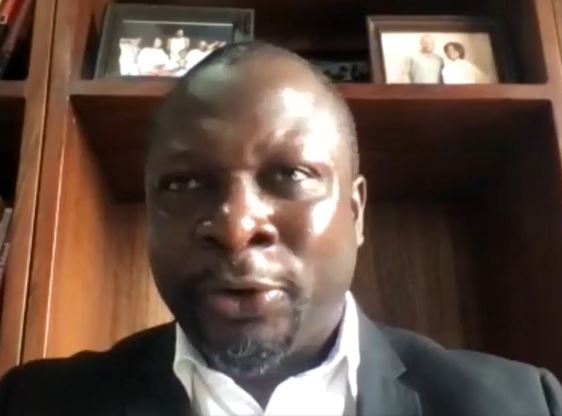The Ghana Association of Bankers has kicked against any proposal for the Bank of Ghana to cap interest rates in the country, saying, it would be counterproductive and could result in unintended consequences.
According to its Chief Executive, John Awuah, lending rates can only be determined by market fundamentals and not force regulation.
The Institute of Economic Affairs has made a suggestion for the Bank of Ghana to consider capping interest rates in Ghana, to help bring down cost of credit.
But Mr. Awuah disagrees, saying, “any suggestions or any discussions of capping interest rates should be of a concern because it has a probability or propensity to be counterproductive and can really result in unintended consequences”.
“You can sight the example that we have seen in Africa where Kenya after three unsuccessful attempts at introducing interest rates cap, it finally introduced caps on interest rates in 2016, only to make a U-turn in 2019 going back to free-market-determining lending rates. You can’t run away from market fundamentals”, he explained.
To him “as a country, we should all rally behind policy makers in their efforts towards a move to lower market interest regime. And banks will not have anything to do than to follow suit as we have done.”
In the last five years, lending rates have trickled from the average of 29% to about 20.5%.
Mr. Awuah said “I think the discussion should be on what can we do more about what we’ve done in the last three or four years that has resulted in market rates coming down, policy rate trending downwards, T bills trending downwards, and all the other rates have followed suit. Lending rates is one of the rates and automatically that will also follow.”
Cost of loans fall further, as average lending rate pegged at 20.61% – BoG
Cost of loans continue to fall but marginally, as average lending rate stood at 20.61% per annum in June this year.This is equivalent to 1.72% interest on loans per month.
However, the average lending rate varies among the banks and the respective sectors.
For instance, some banks will offer loans as low as 17% per annum, whilst others charge rates as high as 27%. Overall, it will depend on the risk profile of the customers.
Also, lending to the agriculture sector is considered riskier than the manufacturing sector, and therefore credit to the agriculture sector will be higher.
According to data from the Bank of Ghana, average lending rate fluctuated in the first quarter of the year, but has since retreated.
Latest Stories
-
Ayew Afriyie urges NPP to publish 2024 election defeat report to foster transparency
6 minutes -
2025 BECE: 21 pregnant candidates, 17 nursing mothers write in Upper East Region
24 minutes -
Avoid examination malpractice – Haruna tells BECE candidates
31 minutes -
People insulted my mother for allowing me choose music over medicine – Richie
35 minutes -
Highway robbers shoot tipper truck driver in the eye at Gomoa Potsin
35 minutes -
It’s selfish to say an artiste should never leave your label – Richie Mensah
41 minutes -
Best wishes, be confident and you will succeed – Education Minister to BECE candidates
43 minutes -
Examination malpractice is becoming a ritual – Dr. Asah-Asante
48 minutes -
Stop the ‘rhetoric’, Ghanaians must enjoy unlimited monthly internet data on fixed fee – MP to Sam George
58 minutes -
How South Korea’s CSR efforts in Ghana support Sanitation and the SDGs
1 hour -
Speaker directs MPs, ministers holding office of profit to regularise positions within 14 days
1 hour -
Man remanded for allegedly killing and burying UEW Professor
1 hour -
“They went too far” – Elon Musk says he regrets some comments he made about Trump
2 hours -
BoG’s cumulative loss since 2007 redenomination hits GH¢82.79bn — Eight times its profit
2 hours -
Today’s front pages: Wednesday, June 11, 2025
2 hours

